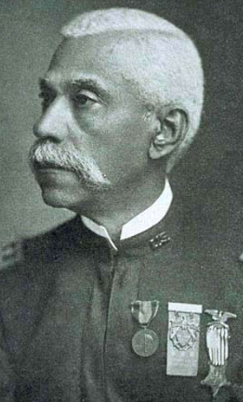Career
In 1861 Scruggs took Allen and the horses to Louisville for a race. There Allen met the soldiers from the 44th Illinois Volunteer Infantry Regiment and told them of his desire to escape. The soldiers helped him to disguise as one of them and thus he marched away along with them.
He joined the Hospital Corps and served as a civilian nurse aid for sometime. One of the surgeons, Dr. A. J. Gordon invited him home and gave him his own room to stay. Allen was beginning to enjoy the joy of being free.
He enlisted in the U.S. Navy in 1863 and earned his first pay as a free man. It was so exhilarating! He worked hard and was promoted to Captain’s steward and clerk and served on the gunboats Queen City and Tawah for two years.
He returned to Kentucky in 1868 and joined his brother William. The two men operated restaurants to earn their living and then sold them for a profit.
Now that he was free and had some money, Allen decided to pursue his education. He joined the Ely Normal School which had been established by the American Missionary Association. He also used to teach at a school for the children of freed slaves.
During this time he became involved with the Baptist Church and was ordained as a preacher in 1871. During that decade he went to Tennessee to study theology and also preached there.
He began working as a teacher in Kentucky in 1875 while at the same time serving as the financial agent of the General Association of the Colored Baptists in Kentucky.
He was invited back to Louisville and was called to be pastor of the Harney Street Baptist Church. He reorganized the church, attracted many new members and renamed it Centennial Baptist Church.
He studied public speaking in Philadelphia and gave public lectures all over the country. He was appointed as Sunday School Missionary for the state of Kentucky by the American Baptist Publication Society. He always believed in the importance of education and worked hard to build Sunday Schools at his churches.
He had by now become a prominent figure through his educational endeavors and public speaking and decided to enter politics. He was selected as Kentucky’s only black delegate to the Republican National Conventions in 1880 and 1884.
He was appointed as a chaplain in the U.S. Army in 1886 when he was 44 years old, making him one of the few black chaplains in the U.S. Army. He traveled along with his family to the various places he was assigned to.
While posted at Fort Bayard, he wrote ‘Outline of Course of Study, and the Rules Governing Post Schools of Ft.
Bayard, N.M’ which was later adapted by the army to be used as a manual for the education of enlisted personnel.
He retired in 1906 as a Lieutenant Colonel, thus becoming the first African-American to reach that rank.
After retiring he had the idea of setting up a community exclusively for African-Americans where they could live away from the racial discrimination that was so prevalent during his time.
In 1908 he founded Allensworth community where black people built homes and schools, established a church, organized a band and orchestra, and became a member of the county school district. Soon the community grew so big that it became a town.








